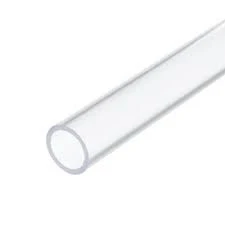Aug . 30, 2024 21:17 Back to list
pvc water supply pipe
The Advantages of PVC Water Supply Pipes
Polyvinyl chloride (PVC) water supply pipes have gained immense popularity in plumbing and construction due to their numerous advantages. These pipes are a type of plastic piping made from a synthetic polymer, which is known for its durability, cost-effectiveness, and versatility. In this article, we will explore the key benefits of PVC water supply pipes that make them the preferred choice for both residential and commercial applications.
One of the most significant advantages of PVC pipes is their excellent resistance to corrosion and chemical damage. Unlike metal pipes, which can rust or corrode over time when exposed to water and other environmental factors, PVC pipes maintain their integrity even in harsh conditions. This characteristic makes them suitable for a variety of applications, including drinking water supply, irrigation systems, and wastewater management.
The Advantages of PVC Water Supply Pipes
Another notable benefit of PVC water supply pipes is their smooth interior surface. This feature reduces friction, allowing for better water flow and minimizing the risk of clogs and blockages. As a result, PVC pipes can help maintain efficient water pressure in supply systems, which is crucial for both residential and commercial buildings.
pvc water supply pipe

Moreover, PVC pipes are manufactured from non-toxic materials, making them safe for transporting drinking water. Compliance with various health and safety standards further reinforces their suitability for potable water applications. Homeowners and business operators can have peace of mind knowing that their water supply is safe and free from harmful contaminants.
Cost-effectiveness is yet another compelling reason to choose PVC water supply pipes. The initial investment in PVC may be slightly higher than that of other materials, such as galvanized steel or copper. However, the long-term savings in maintenance, longevity, and energy efficiency often outweigh any upfront costs. Given their durability and resistance to wear and tear, PVC pipes can last for decades with minimal upkeep, ultimately resulting in lower repair and replacement expenses.
Finally, the environmental impact of PVC piping is worth mentioning. Many manufacturers produce PVC pipes using recycled materials, and the plastic itself is recyclable. This aspect appeals to environmentally-conscious consumers who are looking to minimize their ecological footprint while ensuring their water supply systems are effective and reliable.
In conclusion, PVC water supply pipes offer a range of advantages, including corrosion resistance, lightweight construction, smooth flow, safety for drinking water, cost-effectiveness, and environmental benefits. As a result, it is no surprise that PVC has become a leading choice for plumbing solutions in various applications. For anyone considering a new water supply system, PVC pipes should undoubtedly be at the top of the list.
-
PVC Grey Sheet for Extraction: Chemical Resistant & Durable
NewsAug.19,2025
-
Durable PVC Pipe Fittings for Plumbing & Irrigation Needs
NewsAug.18,2025
-
HDPE Steel Belt Reinforced Spiral Corrugated Pipe | High Strength
NewsAug.17,2025
-
HDPE Pipe Fittings: Durable, Leak-Proof Solutions
NewsAug.16,2025
-
Premium CPVC Sheet: High-Temp & Chemical Resistant Solutions
NewsAug.15,2025
-
Durable PPR Pipe for Hot & Cold Water Systems - Easy Install
NewsAug.14,2025

